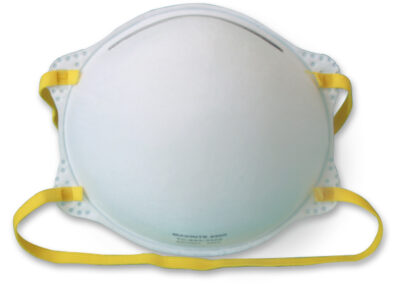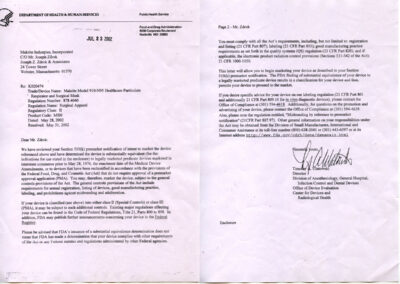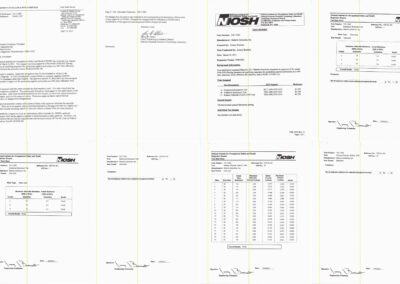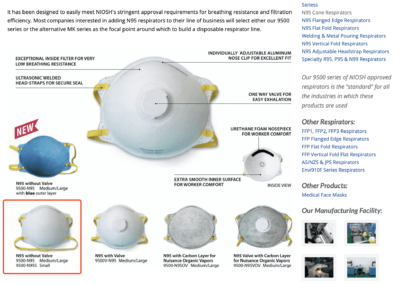N95 Masks
Overview of NIOSH Certified N95 MasksWhy N95 masks?
While single layer nuisance dust masks can help keep you safe during light construction or cleaning activities, they offer little protection against very small particles travelling through the air, like germs from a cough or sneeze, or fine non-poisonous dusts. For protection against small particles, a mask with filtration material, a particulate respirator, is often required. The most popular of particulate respirators approved by the National Institute for Occupational Safety and Health (NIOSH) is the N95 mask, labeled N95 for their 95% efficiency rating. The N95 masks can filter particles of 0.3 microns.
Because of their low price, effectiveness, and comfort, N95 masks are standard in many industries, and have even become a popular way to prevent the spread of germs among the general public. If you sell to, or are in, the industrial, medical, dental, automotive, tattoo or do-it-yourself markets, many of your customers may require N95 masks. N95 masks must be properly fit tested and are “single use” respirators.
The N95 mask has also become popular in the medical field. NIOSH and the Centers for Disease Control and Prevention (CDC) recommended N95 masks for protection of healthcare workers who come in direct contact with patients with H1N1 and other airborne viruses. There are also N95 masks that are certified by the FDA for use in surgery.
N95 Masks Gallery
N95 masks: What to look for
Filter material. All N95 masks will have at least a minimum filtration efficiency of 95%, but that doesn’t mean that all filters are the same. It is important to select an N95 filter with low breathing resistance.
Exhalation valve. Although not required for effective use of an N95, some users prefer a one way exhalation valve that gives lower exhalation resistance for hot and humid working conditions. For almost any N95 mask, you can find a similar model with an exhalation valve as well.
Nosepiece and headstraps. The nosepeice and headstraps to an N95 mask play an important role in not only comfort of the mask, but also effectiveness. An N95 mask needs to fit tightly against the wearer’s face for full effectiveness.
Mask shape. N95 masks are made in a number of shapes. The most common is the N95 cone mask, but flat fold masks (pictured above) are also very popular. We produce a new cone style mask with a “flanged edge” for a different seal to the users face. Mask shape is most often a matter of user preference.
More information
N95 masks are most popular for use in the US, but if your customers are in Europe, you may also choose to carry CE marked masks as well. See our introductory articles on CE Masks and disposable respirators in general.




